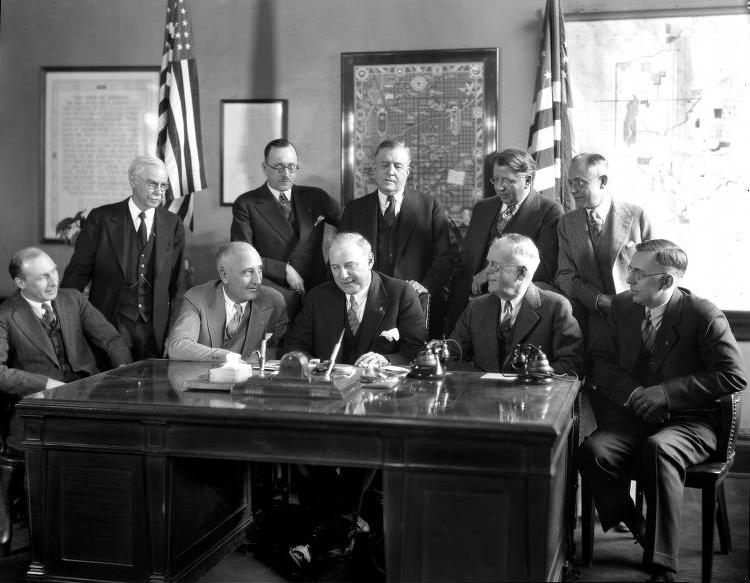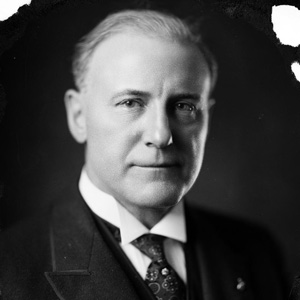(Oct. 8, 1874-Feb. 24, 1952). Born and raised in Johnson County, Indiana, Lemuel Ertus Slack moved to Indianapolis as a young man, reading law and working at . In 1897, he graduated from Indiana Law School, established a law practice in Johnson County, and was appointed deputy prosecuting attorney. He was county attorney of Johnson County, 1898-1904, Democratic state representative, 1901-1905, state senator, 1905-1909, and unsuccessfully sought the Democratic nomination for governor in 1908. He then returned to Indianapolis in 1913, served as United States District Attorney under President Woodrow Wilson, 1916-1920, and was a special federal prosecutor, 1920-1923.

The selection of Slack to complete the term of Mayor represented the beginning of the end of the dominance of the in Indianapolis City government. The had brought Duvall into office as a Republican, pro-Ku Klux Klan candidate. Members of the Klan also dominated the City Council. On September 22, 1927, Duvall was convicted for violation of the Indiana Corrupt Practices Act. He was accused and found guilty of having traded jobs for votes during his mayoral election campaign.
On November 8, 1927, the City Council elected Slack on the 38th ballot to finish Duvall’s term. In April 1928, continuing investigation into official and political corruption led to resignations from the Council, and Slack and a Council of five newly appointed Republicans, two new Democrats, and two originally elected Democrats governed until January 6, 1930. They consulted frequently with civic organizations, made additions to the , and widened many streets. Slack eased many Duvall appointees out of executive jobs, replacing them with Democrats.
After leaving office, Slack resumed his law practice. In 1936, he was appointed by Governor Paul McNutt to finish a term on the Superior Court, which ended December 31, 1938. Slack died in the Masonic Home in Franklin, Indiana, where he had lived in retirement for five years. He also is buried in Franklin.

Help improve this entry
Contribute information, offer corrections, suggest images.
You can also recommend new entries related to this topic.





